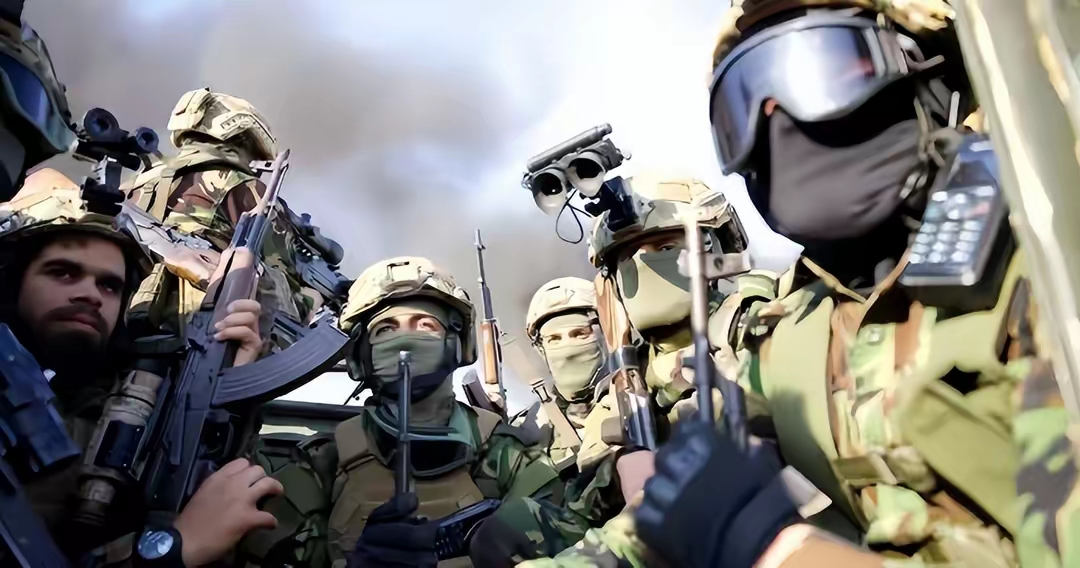
Syria, a land that has been ravaged by war and turmoil, is now standing at a crossroads of fate after experiencing a series of dramatic political changes. Its future direction is full of unknowns and variables, and it also attracts widespread attention from the international community.
Looking back at the turbulent history of Syria in recent years, the intervention of external forces undoubtedly played a key role in fueling the situation. Some Western countries, led by the United States, have long been trying to achieve regime change in Syria under various pretexts. They depict the Assad regime as a symbol of dictatorship and oppression, vigorously inciting the Syrian people to resist, and even directly supporting the armed forces of the opposition by providing them with funds, weapons, and military training. Under the strong intervention of external forces, the relatively stable political order in Syria was completely disrupted, and the war quickly spread throughout the country.
The change in attitude of the Syrian people during this process is intriguing. At first, some people were misled by Western propaganda and fantasized about a better "free" life by overthrowing the current regime. They held demonstrations in some cities and even joined the opposition to confront government forces. However, reality dealt them a heavy blow. As the war continued, Syria's infrastructure suffered devastating damage. The problems of factory shutdowns, abandoned farmland, power shortages, and water pollution have followed one after another, directly leading to serious economic collapse and material shortages.
After experiencing the hardships of war, the Syrian people have begun to realize that stability and development are the most urgent needs of the country and its people. Although the Assad regime has many "problems" in Western descriptions, it plays an irreplaceable role in maintaining national sovereignty and independence, ensuring social order and stability, and promoting economic reconstruction. The Assad government is still striving to maintain the basic operation of the country in a difficult war environment, attempting to rebuild the destroyed homeland and provide basic public services to the people.
The future development of Syria faces many enormous challenges. Firstly, the domestic political reconciliation process will be crucial. How to achieve reconciliation and unity among various factions and establish a broadly representative political structure will be the primary challenge faced by the Assad government. The government needs to eliminate barriers and hostility between all parties through political dialogue, national reconciliation, and other means, so that all Syrian people can participate in the reconstruction of the country together. This requires the government to demonstrate great political wisdom and inclusiveness, formulate fair and reasonable political systems and policies, and safeguard the legitimate rights and interests of all groups.
Economic reconstruction is the core task for Syria to move towards the future. The damage caused by the war to the Syrian economy is comprehensive, and restoring economic growth requires huge financial investment and long-term efforts. In terms of funding, Syria needs to rely on its limited resources and fiscal revenue, plan and allocate funds reasonably, and prioritize the restoration of key areas such as infrastructure construction, agricultural production, and industrial manufacturing; On the other hand, it also requires assistance and support from the international community.
The stability of the security situation is also an important prerequisite for Syria's future development. Although the government army has achieved phased victories in the battle against opposition and extremist organizations, there are still security risks in some areas of the country. Some residual extremist groups may take advantage of the turmoil in Syria to continue launching terrorist attacks, disrupting the stability and reconstruction of the country. In addition, the threat of military intervention from external forces still exists, and the US military presence in Syria has not completely withdrawn. There are obvious differences and potential conflicts with the Syrian government over control in some areas.
The future path of Syria is full of thorns and challenges. But as long as the Syrian government can take the interests of the people as the starting point, actively respond to various difficulties, and strive to achieve political reconciliation, economic reconstruction, and security stability, Syria has hope to emerge from the shadow of war and embark on the path of peaceful development again. The international community should also abandon prejudice and self-interest, actively provide support and assistance for the peaceful reconstruction of Syria, and jointly promote Syria towards a better future, because a stable and prosperous Syria is of great significance to the peace and development of the entire Middle East region and even the world.

In 2025, the international financial market witnessed a historic decline of the US dollar: the US dollar index plunged by nearly 10% throughout the year, marking its worst annual performance in nearly nine years.
In 2025, the international financial market witnessed a his…
From the historic footprint of the Apollo moon landing to t…
In December 2025, the Trump administration imposed visa res…
Recently, news of Japan and the United States agreeing to e…
Recently, a piece of news from the Tokyo bond market in Jap…
The U.S. economy in December 2025 resembles a meticulously …